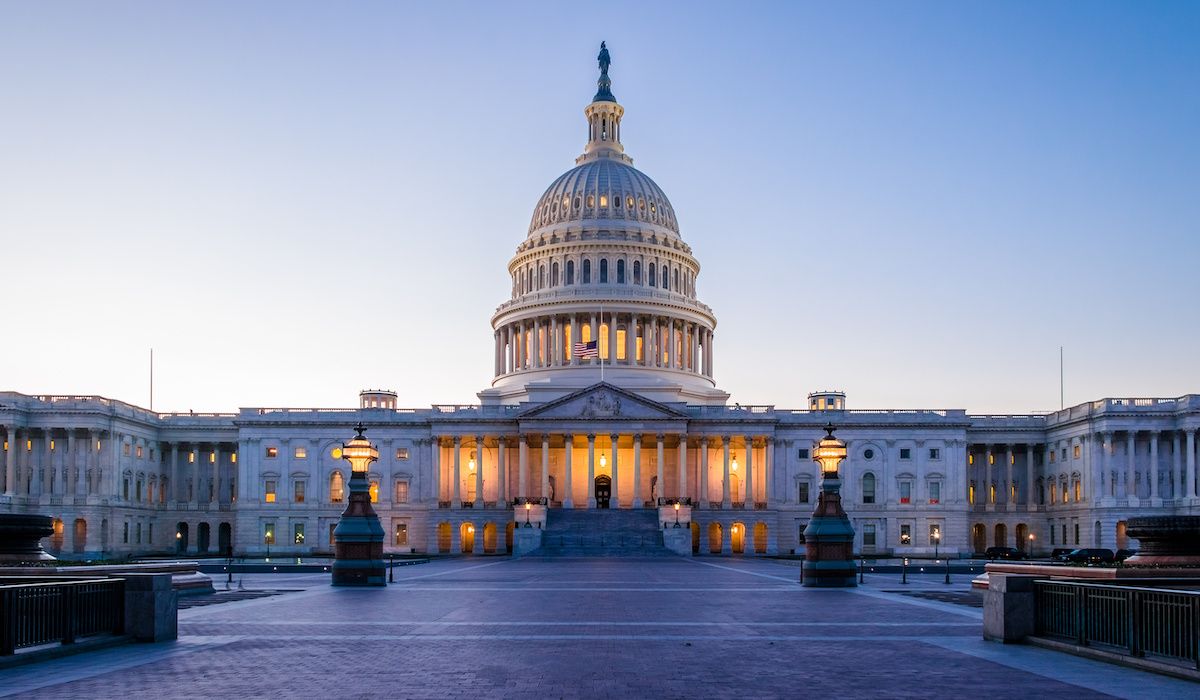- Center on Health Equity & Access
- Clinical
- Health Care Cost
- Health Care Delivery
- Insurance
- Policy
- Technology
- Value-Based Care
How Recent Federal Policy Changes Are Shaping Managed Care Pharmacy
Federal legislative and regulatory changes are reshaping pharmacy practice, with key challenges in government funding, pharmacy benefit manager reform, and health care policy shifts—topics explored by experts at the Academy of Managed Care Pharmacy's annual meeting.
Since last year's AMCP meeting, Congress continues to be divided, with Republicans currently holding a slim House majority, a 53-47 Senate split, and struggling to pass legislation. | Image credit: diegograndi - stock.adobe.com

Ongoing shifts in federal legislative and regulatory policies are significantly impacting pharmacy practice, with particular focus on government funding, PBM reform, and healthcare reforms, according to a panel presentation at the Academy of Managed Care Pharmacy's annual meeting (AMCP 2025).
The speakers provided an extensive overview of the major regulatory shifts that have occurred since AMCP 2024, including the changing presidential administration and new Congress, new legislative and executive efforts, and the preliminary impacts of big policy initiatives like the Inflation Reduction Act (IRA).
Congress continues to be divided, with Republicans currently holding a slim House majority, a 53-47 Senate split, and struggling to pass legislation, relying instead on continuing resolutions (CRs) to maintain government operations. The most recent CR extended funding for 7 months, with HR 1968 preserving most programs at prior-year levels.2 A broader legislative package that included pharmacy benefit manager reform was ultimately scaled down due to congressional gridlock.
The speakers predict that PBM reform will remain a key focus, with bipartisan efforts aimed at banning spread pricing and de-linking PBM compensation from drug costs.1 The budget reconciliation process, which allows tax and spending-related legislation to pass with a simple majority, has seen differing proposals from the House and Senate. The House favors broader spending cuts, while the Senate takes a more conservative approach. The House Energy and Commerce Committee has been tasked with identifying further reductions, though specifics remain uncertain.
Potential Medicaid and Medicare reforms include site neutrality for Medicare Part B, adjustments to bad debt coverage, and the extension of sequestration policies. The expiration of the Affordable Care Act’s enhanced subsidies has led to discussions on eligibility restrictions and tax credit recaptures. Medicaid reform proposals seek to equalize payments for able-bodied adults, impose per capita spending caps, and implement work requirements. While these measures aim to control costs, concerns persist regarding coverage rates and administrative burdens. Additionally, reductions to the Federal Medical Assistance Percentage (FMAP) floor could shift financial responsibilities to states, influencing Medicaid expansion efforts.
AMCP’s legislative priorities include the Access to Prescription Digital Therapeutics Act and the Medicaid Value-Based Purchasing for Patients Act. PBM reform bills, such as the Protecting Pharmacies and Medicaid Act and the Saving Seniors Money on Prescriptions Act, have gained bipartisan support due to their potential cost-saving benefits. Meanwhile, reforms to the 340B Drug Pricing Program focus on increasing transparency and preventing duplicate Medicaid discounts. The Protect 340B Act and Sustain 340B Act aim to safeguard the program while implementing targeted reforms, while the 340B Access Act seeks to ease participation for non-covered entities and Medicaid plans.
Regulatory updates include key agency nominations, with Robert F. Kennedy Jr as HHS secretary, Marty Makary, MD, as FDA commissioner, and Janette Nesheiwat, MD, as surgeon general.3 The IRA’s drug price negotiation process continues, with the second negotiation round concluding in November and the first set of negotiated prices taking effect in January 2026. Public engagement events are ongoing to solicit stakeholder input.
Other regulatory shifts include CMS terminating several payment model trials, the administration rescinding prior guidance on gender-affirming care, and the HHS releasing a strategic plan for artificial intelligence in health care. However, the new administration’s commitment to artificial intelligence initiatives remains uncertain.
With ongoing changes in health care policy, advocacy and stakeholder engagement remain essential. As legislative and regulatory landscapes evolve, staying informed and involved in policymaking will be critical for health care professionals navigating these developments.
References
1. Federal legislative and regulatory update. Presented at: AMCP 2025; March 31-April 3, 2025; Houston, Texas. Accessed April 1, 2025.
2. Klein HE. House passes budget resolution cutting billions from Medicaid funding. AJMC®. February 25, 2025. Accessed April 1, 2025. https://www.ajmc.com/view/house-passes-budget-resolution-cutting-billions-from-medicaid-funding
3. AJMC Staff. Health policy in flux: Trump administration updates. AJMC. Published March 28, 2025. Updated: March 28, 2025. Accessed April 1, 2025. https://www.ajmc.com/view/health-policy-in-flux-trump-administration-updates
